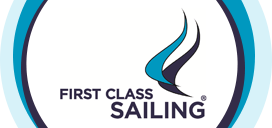
- Information
- Call Us: 0203 006 3717 (9:30am-4:30pm)

Everything You Need To Know About RYA Yachtmaster Theory
In last weeks blog we broke down RYA Day Skipper Practical and how it fits in to your learning progression. RYA Yachtmaster Theory is the next step in that journey and on its completion you opens up RYA Coastal Skipper Practical Course as well as several other interesting optional courses you could take. This blog will tell you Everything You Need To Know About RYA Yachtmaster Theory.
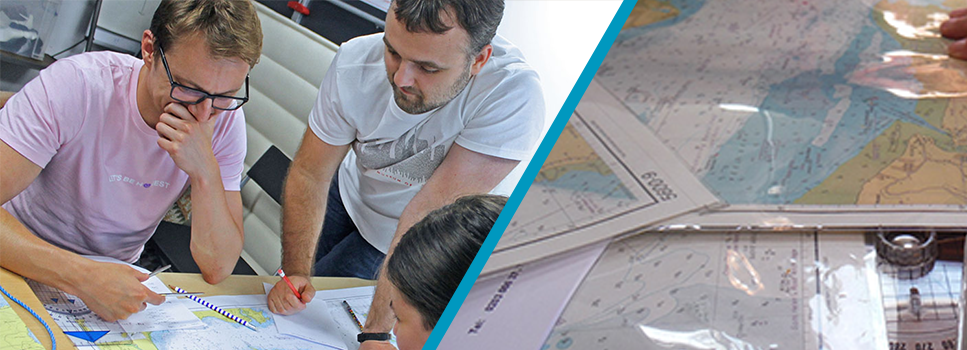
What is RYA Yachtmaster Theory?
Being a theory course its shore based in a classroom or online via zoom. It assumes you have completed RYA Day Skipper theory or possess a comparable level of knowledge as it teaches you more advanced navigation techniques. You will learn about navigating safely on coastal and offshore passages. If you plan to progress to Coastal Skipper practical, Yachtmaster Coastal or Yachtmaster Offshore then you should be taking this course.
What RYA Yachtmaster Theory teaches you?
The course in essence will teach you advanced theory of navigation and meteorology. For those with extensive sailing experience with previous navigational experience, the course builds upon those basic skills. You will be developing a comprehensive depth of knowledge and understanding of navigation theories, techniques and practices.
www.firstclasssailing.com/rya-courses/yachtmaster-theory-course
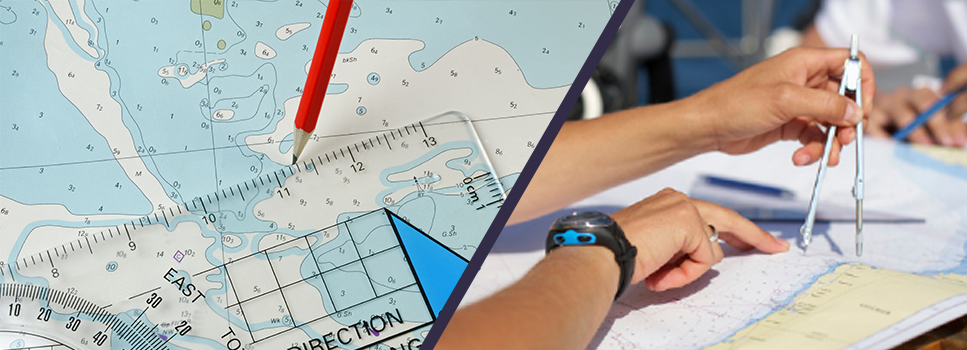
What can I expect to do?
RYA Yachtmaster Theory is an in-depth course with a wide subject field. But in short it will include position fixing, magnetic compass, tides, tidal streams, buoyage, lights, pilotage, and introduction to GPS and plotters, meteorology, collision prevention regulations, safety, navigation and passage planning among a lot more to numerous to go in-depth about in a short blog.
Where & When Can I take RYA Yachtmaster Theory?
There are three different ways you can take Yachtmaster Theory. We offer classroom based courses in our Southampton (Shamrock Quays) location and across London. The classroom based course runs for 8 weeks ( 1 evening per week) and a weekend, or over 2 and a half weekends. If you have a suitable space we can also come to your office and run the program for your colleagues. Due to the impact of COVID we adapted our shore based courses for online zoom learning. This became very popular over the pandemic and the flexibility it offers means it has maintained it popularity. Like the in person course is typically run over 8 weeks however is sometimes compressed with multiple lessons a week. Finally we have a purely online version that allows you to dip in and out as and when it suits you. Support from an instructor is only a phone call or email away
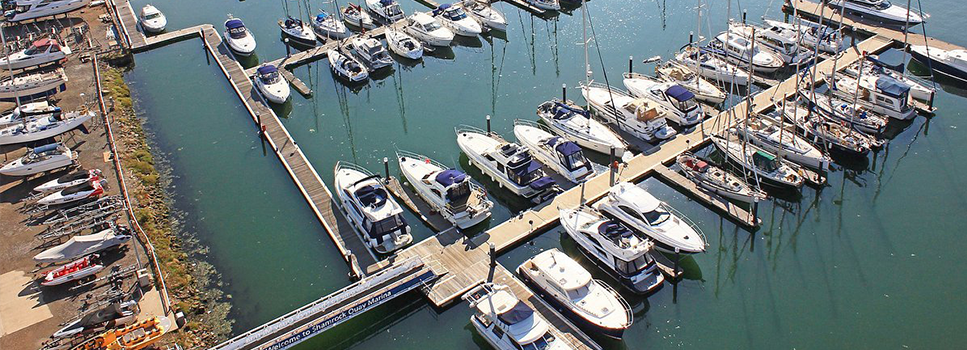
What Equipment Will I Need?
No matter if you doing RYA Yachtmaster theory in a classroom, via zoom or online, each format comes with a extensive set of materials to make use of. All students will receive a RYA work pack of charts, tide tables, port information and mock questions. A website with course slides will also be accessible after each lesson to help you refresh you memory. Those taking the Classroom or Zoom versions will also receive s Cockpit Companion.
To complete the course you will need a set of plotter and dividers. We can provide them to you for £20 to be collected at your first lesson. If your doing the Zoom or Online versions we will courier them to you. You can also opt to buy your own however they will likely be more expensive. If you have already completed RYA Day skipper theory or have the comparable experience you should already have everything you need.
Lastly If you haven’t already got a logbook you should make sure you get one. They are £7.49. The Logbook is a place to record your miles and keep your certificates. It outlines the whole RYA Cruising Scheme giving the course content for each course again if you completed prior course you should already have one of these.
What skills will I have after the course?
On competition of RYA Yachtmaster Theory you should now have the Background knowledge you need to skipper a yacht on coastal passages by day and night. You can now develop your skills further by moving up a level and taking the RYA Yachtmaster Practical , which in itself opens up several more course options. You can find more information about course options by following the link below.
www.firstclasssailing.com/first-class-sailing-rya-course-progression-plan
Want to get started?
Hopefully this blog has answered Everything You Need To Know about RYA Yachtmaster Theory. If you have any further questions or you are interested in taking RYA Yachtmaster Theory click here to see availability and dates. You can also E-mail [email protected] or call 0203 006 3717
Find out more about this course by following the link below.
www.firstclasssailing.com/rya-courses/day-skipper-theory-course
Posted by: First Class Sailing
Post a Comment Cancel reply
Name (required):
Email (required):
Your comment (required):
- All Categories
- Antigua – Portsmouth
- Atlantic Adventures
- Boat Handling Master Classes
- Channel Crossing – Channel Islands
- Coastguard Closures
- Crowdfunding
- Experiences and Challenges
- Fastnet Race
- Global Ocean Race
- Golden Vanity
- Learn to Sail
- Night Sailing
- Norway Challenger
- OnLine Learning
- Passage Planning
- Portsmouth – Gran Canaria
- Round the Island Race
- RYA Competent Crew
- RYA Courses
- RYA Day Skipper
- RYA Diesel Engine Maintenance Course
- RYA VHF Radio Course
- RYA Yachtmaster
- Sail Round Britain
- Sailing Around Britain
- Sailing Events
- Sailing Holidays
- Sailing in media
- Sailing in the West Country
- Sailing Tales
- Sailing Trips
- Skippered Charter
- Southampton Sailing Week
- Traditional Sailing
- UK Sailing Holildays
- Whole Boat Charter
- Yacht Design
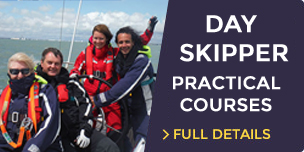
Sorry. No data so far.
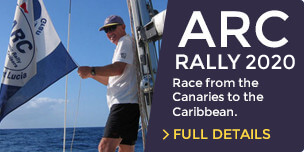
We love to hear from our customers and we are happy to call/email you to discuss your sailing needs.
Yachting Monthly
- Digital edition

Tips and hints for passing your Yachtmaster practical
- Katy Stickland
- July 21, 2021
Having brushed up on their theory, racing turned cruising sailors Liz Rushall and her husband Mark now put it into practice and tell you how to pass your Yachtmaster Practical exam

The humble fender and bucket, used to simulate a man overboard, is surprisingly effective in revealing things about your boat handling, leadership and decision-making skills. Credit: David Harding
Having got through her Yachtmaster Theory , Liz Rushall shares her tips and hints for the Yachtmaster Practical
It’s not often I wish to not be aboard a boat, writes Liz Rushall .

Liz Rushall has won national dinghy and keelboat titles, but currently cruises a 28ft classic called Ragdoll
But in the dead of night, stressing about to what extent should I be using the instruments, when the examiner hasn’t said you can or can’t, and not being able to ‘chat’ with my crew as I would normally, and I was well out of my comfort zone.
This was after making myself feel a complete idiot from being unable to articulate the type of diesel engine, it’s cooling system and the location of the heat exchanger on an unfamiliar boat, and getting my words impossibly muddled up about flares and liferafts.
I was a bag of nerves.
Whilst I hadn’t committed any of the instant fail sins (running aground, involuntary gybes and hitting anything), I certainly spent the first night feeling broken.
Luckily, James Pearson, our extremely patient examiner asked many ‘helpful questions’ and allowed us to correct some of our verbal gaffs over the two-day exam.
Why do a Yachtmaster exam?
Having completed, and passed the Yachtmaster exam with my husband and brother, we are still justifying to curious friends the ‘why on earth, with all your experience’ we did it.
Mark, an Olympic coach, and I have raced successfully all our lives, and more recently cruised Ragdoll , our little 28ft long-keeled classic boat some respectable distances.
However, whatever our friends kindly say, we knew that following a few cruising errors in previous seasons, it was time to hit the refresh button and fill in some knowledge gaps.
The adage that you never stop learning in sailing could not be more true.
During our training, and more so during the exam itself, we certainly discovered our fourth Johari window – the stuff ‘we didn’t know we didn’t know’.

Liz and Mark did their Yachtmaster Practical and subsequent Yachtmaster Offshore exam with Universal Yachting in Hamble. Credit: David Harding
Before starting the Yachtmaster process, we knew we were coming at the exam via a slightly unusual route.
We’d never done the conventional pathway of practical Day Skipper or Coastal Skipper exams.
In fact, despite winning a number of championships, we didn’t have a sailing qualification to our name.
Due to hectic work schedules, and our perhaps ‘assumed’ experience, we were steered towards doing a three-day ‘crash’ course ahead of the exam, with Hamble- based sea school Universal Yachting.
Our three-day Yachtmaster Practical training was probably as taxing for us as for our senior instructor, Clive Vaughan.
With acres of knowledge, Clive patiently drilled us through multiple boat-handling techniques.
Universal Yachting supplied us with a brand new Dufour 412 for our Yachtmaster Practical course and exam – a completely different experience to our wooden classic, with few electronics.
Leadership style
One of the immediate ‘culture shock’ challenges we all experienced was the expected leadership style.
When we race, whether as skipper, helm or crew, it is always a collaborative set-up. Barking orders rarely wins races.
Discussing situations, sharing thinking and playing to your team’s strength does.
However, to get us ready for the exam, Clive had to actively encourage us to direct each other.
Being so used to sailing together, it felt odd having to issue instructions and to ‘tell’ rather than share thinking.

Liz is used to a more collaborative approach to sailing, so needed to adapt to a different leadership style. Credit: David Harding
The exam leads you to a scenario where individual leadership is highly valued.
However, it felt very unnatural, and not how any of us would typically operate either in racing or in business.
In my case, it definitely began to affect my decision-making capabilities and confidence in myself.
I found it best to consider the role of skipper for Yachtmaster as a more managerial position.
For this to work, planning ahead was crucial so I was prepared to give my crew specific instructions when situations arose.
Clearly, being ahead of those situations was a key as was coming up with a step-by-step plan for my crew in a variety of situations.
Berthing skills
In a short space of time Clive taught us new techniques for berthing a modern, high-sided, 40ft yacht.
With its high topsides, shallow forefoot, deep fin keel and spade rudder, it naturally seeks the wind when going astern.
Reversing up-tide and upwind into a berth is amazingly easy, and is a skill suited to this boat.
However, this manoeuvre is simply not an option in our long-keeled Ragdoll , as she exhibits very limited manouverabiility when going astern, while in the more modern, fin-keeled Dufour it was a dream.
As such, using just a stern line we could then motor forward with the engine to bring the bow in, rather than a spring.

Liz and her husband Mark were not used to reversing into a berth but it proved a very useful technique and would be especially handy when sailing short handed. Credit: David Harding
It’s a brilliant technique if you are sailing shorthanded, but not one we had ever used before.
We practiced a lot of going astern and parking scenarios, which left me puzzling why I’d spent so much of my sailing career using springs as a sure way of getting our little boat on and off the dock.
What is obvious, however is that, once we are back onboard Ragdoll reversing onto a pontoon berth may be that much harder.
Going astern is always going to be tricky on a long-keeled yacht where prop walk has a much larger influence but there are conditions in which it will work for us and the ease of using the engine to pull the bow in will certainly make it worth the practice time.

It is easier, when shorthanded, to make off the aft mooring line and then use power ahead to hold the boat in to the berth. Credit: David Harding
As ever, we need to spend a little more time finding what works best and when.
The key is to try different options on our boat in a variety of scenarios to better understand what she will and won’t do, and how she differs to other boats.
Inevitably, you cannot simulate every scenario, and switching from training mode to exam mode was tricky too.
During the Yachtmaster Practical, one of us had to park the boat on a crowded outer hammerhead pontoon with a strong crosswind.
We’d been so drilled into our new mooring techniques, it took two failed attempts before the realisation that it was OK to do it the way we’d normally do, with a spring line!
Close-quarter manoeuvres
We’d all been advised in an exercise not to turn this boat on the spot using just small amounts of forward and astern, something we always do to turn our long-keeled boat in a tight space.
Faced with a tight turn in a marina, with cross tide, my decision making fell apart.
On a long-keeled boat that carries her way for ages, there needs to be much more momentum and water flowing over the rudder to generate the turning moment, whereas on this boat, a combination of prop wash over the rudder and lack of full keel could turn her around smartly.

Manoeuvring astern, focus will be on where you are aiming, but don’t forget to check what the wind and tide are doing to your bow. Credit: David Harding
It was an alien experience to be relying on engine and fenders to come into a berth and stop.
I was still not used to how much quicker a light, fin keeled boat could be made to turn on the spot by putting the helm hard over and giving the engine some revs, and we tended to be too tentative applying engine power.
In hindsight, taking a break between our Yachtmaster Practical course and the exam could have given time to let new knowledge sink in, and to practise it in different scenarios.
Night passages
Both the Yachtmaster Practical training course and the exam were a brilliant way to challenge our sailing skills.
Lacking an autohelm, we don’t do many night passages.
When we do it tends to be into harbours we know.
We are very familiar with sailing racing dinghies out of strange harbours all over the world, racing in fog and some very extreme conditions.
However, it’s a very different experience when cruising.

Ahead of our night passage, looking at sources of likely light pollution was helpful for situational awareness. Credit: David Harding
Completing a number of night passages and pilotage exercises during the Yachtmaster Practical was so useful.
It’s much easier to recognise lights on vessels and buoys for real, rather than pictures on a page, but to have brushed up on the lights for fishing vessels, and commercial vessels other than the most basic – restricted in ability to manoeuvre, constrained by draught and towing – really paid dividends in making sense of what we saw on the water.
We also spotted some very curious light combinations, including sailing yachts impersonating a fishing vessel by displaying both masthead tricolour and steaming light and it was helpful to decipher what was what.
One of the biggest obstacles on a close-in night passage is light pollution.
Close to shore there were many other uncharted lights to contend with.
A big lesson was to look beyond the chart markings and having a sensible check of what is on the shore near where you are going to be sailing before you set off so you have a good chance to anticipate potential confusion.
Blind passages
The exercise I’d been most dreading was the blind passage making.
You are navigating from down below, relying on your crew to tell you depths, speed and log readings.
My biggest issue is doing the maths on the hoof. The contours give you one number, the depth sounder another, and the height of tide another.
Under pressure, figuring out which subtracts from which promptly turns me into a gibbering wreck.
As it happens, during Yachtmaster Practical training, I managed to navigate pretty much exactly to the desired point using a bit of dead reckoning and some bad maths, so that was a huge confidence boost.
However, this is where I do take issue with a number of the Yachtmaster course books. The authors all assume a level of maths capability.
There’s no scope for those of us who have a touch of dyscalculia, a learning difficulty associated with numeracy.
Distance may well equal speed multiplied by time.
But I also soon realised that it makes things much easier if the time segments you are working to also need to be a percentage of the hour.
So, calculating positions every six minutes in fog allows you to divide your speed neatly by 10 to give you how far you will travel in 6, 12 or 18 minutes.
Having spent hours close to tears of frustration trying to figure out these calculations, I devised my own crib sheets that meant I could read off a percentage to use against each minute of an hour.
Fifteen minutes is therefore clearly 25% of an hour, 14 minutes is 23.3% and 13 minutes is 21.7, for example.
This crib sheet and others are something I will be using on my own boat to avoid future frustrations.
Mooring under sail
Other exercises included sailing onto anchor or mooring buoys.
Doing this downwind and uptide was something we’ve never had occasion to do in a race.
It’s more normally been a case of there’s no wind so fling the kedge out.
Dropping the mainsail well out from the buoy and using the headsail to steer in offered a great deal of control.
It was also very useful making a practice approach to give a good idea of how hard the current is running and from how far out we need to start scrubbing speed.
It was also particularly useful to set up a variety of clear transits so we had a good idea of actual boat speed on the approach as the log becomes essentially useless in tide.
You may decide to moor under motor most of the time, but I found the exercise trained us to have real control of how to place and stop the boat exactly where we want it and not rely on the engine.
Man overboard
Doing hours of man overboard exercises under engine and sail during our Yachtmaster Practical was brilliant, as evidently, we all needed some practice
Since the drill involves doing three or four things instantly, we were keen to work through techniques for short-handed MOB.
It was fascinating to quick stop the Dufour.
Rather than the conventional ‘figure of eight’, we learned to throw the boat into a tack, heaving to with the wheel hard over.

The Dufour was easy to control under sail using the fill and spill method during our Yachtmaster Practical. Credit: David Harding
She happily turned on the spot, giving you time to sort yourself out.
We’re still not sure how Ragdoll will behave, although we’ve come away with new ideas to try.
It was certainly eye-opening how quickly our recovery times came down after only a few short attempts.
Getting hove to quickly was a key so that we could remain in sight of the ‘casualty’ and it also helps slow everything down when you have a number of tasks to complete under stress.
As with manoeuvring in a marina, we also found under sail the Dufour easier to scrub speed off using the ‘fill and spill’ method than we suspect Ragdoll will be, as she both carries more way, and requires more way to maintain steerage, but we will certainly be doing some practice on her to improve our skills.
Switching between Yachtmaster Practical training and starting the exam, with just a couple of hours, was harder than I’d realised.
Suddenly, three days of Clive’s expert advice was switched off.
James explained the exam format, and how he would set us tasks, not give any feedback, just take notes. He also said we would make a lot of mistakes. And we did!
Within minutes we were on deck talking safety gear.
Despite hours successfully collecting our MOB bucket, now we weren’t just discussing recovery techniques, but demonstrating them with the examiner as our body on the dock.
It literally was in at the deep end and it continued relentlessly.
‘Question time’ highlighted that whilst I’d attended diesel maintenance and sea survival courses, clearly my memory hadn’t.
We were then into the sailing elements of the exam.

Liz found the Yachtmaster Practical and subsequent exam stressful. Credit: David Harding
It’s a good test of practical scenarios both ashore and afloat, testing your knowledge and skills in a variety of difficult situations.
Having successfully managed to navigate our night passages, day two started early.
Whilst it was a relief to go sailing, it promptly turned into your metaphorical ‘worst ever day in the office’.
After a few straightforward exercises sailing on and off moorings, I was set the first passage from Portsmouth Harbour to Wootton Creek.
On route, the instruments ‘went down’, the MOB bucket went overboard whilst I was down below chart-plotting, then the steering cable ‘broke’.
Of course, the engine had ‘failed’ too.
It seemed endless, and hard not to wonder ‘am I doing the right thing?’
Fortunately, we sailed in with emergency tiller fitted without running aground or doing circles in front of the Wightlink ferry!
Continues below…

Tips and hints for passing your Yachtmaster theory
Racing turned cruising sailors Liz Rushall and her husband Mark go back to school to brush up on their Yachtmaster…
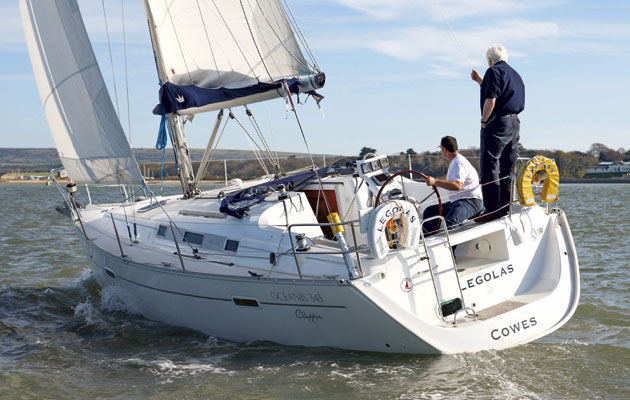
How to pass your Yachtmaster exam
The global standard of sailing qualifications is achievable for any experienced, competent skipper. Tom Cunliffe explains how to pass your…

12 expert skills to take you beyond Yachtmaster
Rupert Holmes outlines the skills that mark out the good sailors from the great ones, with experience and reflective learning…

Man overboard: tactics that really work for couples
The YM team get wet to see how well the MOB process works for shorthanded sailing. Here are our findings...
The day continued and each one of us went through our practical exercises with yet more scenarios thrown at us on the way.
Just as you think about breathing freely, it’s time to be hauled below for more questions. Result!
My lights knowledge was better than my crewmates. But, we were all stumped by the exercise to interpret a radar chart.
We’d never used radar as we use AIS on Ragdoll instead.
In desperation, I even checked the Yachtmaster books I’d borrowed, but no joy.
At this point I was ready to volunteer to be the next MOB.
By the afternoon the breeze was pumping a good Force 6 off Cowes and my brother got his MOB exercise.
Despite being over- canvassed for the brisk conditions, the Dufour handled brilliantly, our bucket was safely retrieved with a bit of engine assistance.
But it really hit home that simply getting back to your MOB is only half the problem, and just how difficult full recovery onboard is in these conditions.
It was a huge relief to get back to Universal Yachting’s dock, and thankfully I parked the boat first time.
Looking in the mirror
We each had a really useful one-on-one feedback session with James, leaving us with a clear picture of our strengths and areas to work on.
We were seeking our knowledge gaps, and we certainly found them. Evidently for me, even having done courses like shore- based engine maintenance, how to do basic engine trouble shooting was something
I was weak on. I also found that my maths was an area that needed attention.
The experience highlighted what stress and tiredness can do to your ability to function ‘normally’.
Adapting to the pre-requisite to tell your crew what to do, and not discuss things, made if feel a bit surreal, but it does mean you can’t hide behind the knowledge of others, and is realistic if you are sailing with beginners.
Discoveries
Am I glad I did the Yachtmaster ? Absolutely. Did it achieve my goal? Yes, it did, but not in the way I expected.
Having felt complete failures at the time, however, it was amazing to pass and come away with a clear idea of our weaknesses, and ones I hadn’t been aware of before.
There’s much we want to try on Ragdoll , and have already discovered that our ‘highly recommended’ MOB ladder is impossible to use, even in a flat clam.
The learning curve continues…
4 Takeaways from the Yachtmaster Practical
- Understand the engine: Don’t rely on having had a look at the engine manual and your notes from your diesel engine course. Make sure you know the location of the fuel dipstick and the coolant header tank, know how to tighten the alternator fan belt, where the fuel and oil filters are, how to bleed air out the fuel system and have a plan to troubleshoot if the engine stops or overheats.
- Understand the boat: Try to do challenges regularly onboard, such as taking away instruments and engine; it’s surprising how quickly knowledge escapes you in times of stress. Take your boat out and get to know her characteristics. Find an empty marina and spend some time pontoon bashing – try coming in forward and astern. You need to know whether you have enough steerage astern and other boat-specific characteristics such as prop walk one way or another.
- Leadership roles: Although we don’t usually sail with one person solely in charge it was interesting to have the exam take place under these conditions. It did highlight how little official pre-emptive trouble shooting we tend to do. It’s well worth having a variety of ‘what if’ scenarios pre-planned ranging from safety critical MOB drills through to more off the cuff situations. ‘What if’ plans will also be useful for night sailing where what you are faced with might look quite different to what you think you will see from your planning at the chart table.
- Cheat sheets: Struggling through much of the maths for blind navigation forced me to create a number of cheat sheets. Even for those who do not struggle with such things, I’d strongly recommend writing some out anyway. The basic maths for tide and depth calculations might not seem that hard but when you are tired and stressed there is nothing better than having something that allows you do a quick common sense check.

Chieftain Training
RYA & STCW Courses – Sail, Power, Super-Yacht & Workboat
How to Pass the Yachtmaster Exam
Yachtmaster certificate of competence exam top tips, which yachtmaster.
First we need to be clear which Yachtmaster exam we are talking about. Leaving things like the Yachtmaster Instructor and Examiner Qualifications aside there are no less than 8 separate RYA certificates that are called “Yachtmaster”. This includes the 3 independently examined levels of Yachtmaster Certificate of Competence, (coastal, offshore and ocean).
RYA MCA Coastal Skipper & Yachtmaster Offshore Shorebased Course
( Yachtmaster Offshore Shorebased for short). This is a 6 day course which includes three written papers. It is assumed knowledge for all of the certificates that follow, so we will assume for the purposes of this article that you have already completed this course.
Yachtmaster Coastal Certificate of Competence (power or sail)
This certificate follows the successful completion of a practical exam which is discussed in this article. The exam can be taken on board a sailing yacht or motor boat, (and the qualification is endorsed for the relative type of craft). The Yachtmaster Coastal CoC certifies skippers to operate up-to 20 miles from a safe haven on board commercial vessels up-to 24m, carrying up-to 12 passengers. It can also be used as an entry requirement for super yacht Officer Training ( OOW 3000 ).
Yachtmaster Offshore Certificate of Competence (power or sail)
A higher level practical exam, also discussed in this article. This certifies skippers to operate up-to 150 miles from a safe haven on board commercial vessels up-to 2000 tonnes, (again with up-to 12 passengers). It can also be used as an entry requirement for super yacht officer training and is a requirement to progress onto Yachtmaster Ocean CoC (below) and/or MCA Master 200 .
RYA MCA Yachtmaster Ocean Shorebased Certificate
aka Ocean Shorebased . This is a 5 day (or 40 hour online) course which includes one written paper. It is assumed knowledge for the oral exam that follows and beyond the scope of this article. You can read all about the Ocean Yachtmaster Course and Exam here .
Yachtmaster Ocean Certificate of Competence (power or sail)
An even higher level certificate that qualifies the holder to skipper beyond the 150 mile from a safe haven limit of the Yachtmaster Offshore CoC. The Yachtmaster Ocean exam is an oral exam and one of its pre requisites is the Yachtmaster Offshore CoC (above).The Yachtmaster Ocean Exam is beyond the scope of this article, but by popular request we have written a separate article about it, MCA Yachtmaster Ocean Certificate of Competence .
RYA MCA Yachtmaster Coastal and Offshore Certificate of Competence Practical Exam
Getting back on topic this article specifically relates to the two practical exams (Coastal and Offshore), each can be taken onboard a sailing yacht or motor boat.
The exam for the Yachtmaster Coastal CoC and the Yachtmaster Offshore CoC is very similar and in fact different candidates can be examined together even if they are not taking the same level.
Exams are conducted with 1-4 candidates on board the vessel.
You can take the Yachtmaster exam on a sailing yacht or motorboat, and you will become a Sail or Power Yachtmaster as appropriate. This article covers sail and power exams as much of the advice is generic.
The RYA/MCA Yachtmaster qualification is the global standard for sailing and motor boating. The definition of a Yachtmaster Coastal/Offshore is: ‘A yachtsman or woman competent to skipper a cruising yacht on any passage that can be completed without the use of astro navigation.’
The RYA/MCA Yachtmaster Certificate of Competence remains the logical target of many a self-motivated sailor. It also represents the icing on the cake for those looking for the reassurance of an external assessment.
How long is the Yachtmaster Exam?
There can be up to 4 candidates on the boat with the examiner. A examiner will not conduct more than 4 exams at once and will not plan to examine more than 2 candidates in a 24 hour period. He/she will need to see each candidate skipper the boat underway by night.
Yachtmaster Coastal Exam Duration
- 1 Candidate – 6 to 10 hours
- More than one candidate – 4 to 8 hours each
Yachtmaster Offshore Exam Duration
- 1 Candidate – 8 to 12 hours
- More than one candidate – 5 to 9 hours each
For many candidates this means there will be a pause mid-exam while they and the examiner get some sleep before restarting in the morning. It is not unknown for exams to span two nights if there are 4 candidates (for example Friday evening 1800- Sunday morning 1100)
Listed below are some top tips to help you prepare for your RYA/MCA Yachtmaster exam.
Prepare early for your yachtmaster exam.
Most candidates spend some time with an Instructor, whether this is a 5-day preparation course with a sea school or some bespoke tuition on board their own boat. A half decent Yachtmaster Instructor will take you through many of the exercises that an Examiner will expect you to demonstrate and will put you in the mind-set of an exam candidate.
On the day of the exam make sure you are ready in good time so that you aren’t involved in a last-minute faff. If you’re relaxing in the cockpit with a cup of tea when the examiner arrives, the examiner will be more impressed than if you’ve put yourself under stress attempting to work out the day’s tidal heights or secondary ports last minute!
When given a navigation task, prepare fully, make notes, prepare pilotage sketches and plan well! Nip below every so often en route to keep an eye on what’s going on in the chart department and whizz back on deck pronto to carry on skippering the boat. Don’t panic and don’t spend all your time sat behind the chart table, taking no notice of what’s going on around you, this is an obvious sign of someone who is ill prepared for the passage they are skippering.
HAVE YOUR YACHTMASTER EXAM PAPERWORK READY (and the kettle boiling)
The very first part of the exam will be paperwork. Before the examiner can proceed he/she will;
- Ask for your completed exam application form, be sure it is completed in advance and details your qualifying sea time.
- Ask for payment, (the examiner can not proceed if you do not pay up front)
- Ask for sight of your Short Range Certificate , (or a pass form if you have recently taken the course and exam and are awaiting the actual certificate). Higher level GMDSS certificates are acceptable.
- Request a passport photo of you (write your name on the back).
- Chat with you about your yachting background and qualifying sea time
- Outline what he/she expect from you over the coming day(s).
If you are applying for a commercial endorsement at the same time you will also require as a minimum;
- PPR Certificate
- Sea Survival Certificate
- Seafarers Medical Certificate
- Commercial endorsement form and payment
You will also need to hold an in date First Aid Certificate .
BE TIDY AND ORGANISED THROUGHOUT YOUR YACHTMASTER EXAM
First impressions count! Make yourself presentable and ensure you’re looking professional. That’s you and the boat!
Make sure the yacht is clean, tidy and seamanlike. The waterline crisp, sail covers looking ship shape, ropes coiled neatly and carefully stowed and fenders aligned. An experienced skipper once told me, you should know your boat so well that you should be able to find anything you need at any moment in time, including at night during power failure! A tidy boat is a sure sign of a safe boat.

PRACTICE MAKES PERFECT PREPARATION, FOR YOUR YACHTMASTER EXAM
Repetition, repetition, repetition. There is no point in having sailed (or motored) thousands and thousands of nautical miles if you can’t carry out Day Skipper tasks. If you can not confidently demonstrate all boat handling or seamanship skills, such as picking up a mooring buoy or putting a reef in, then you’re not ready for the exam yet!
There is nothing worse than entering or leaving a marina, wondering if you’re going to hit something. Brief your crew, make sure everyone knows what they are doing, and proceed with confidence. If the boat slides smoothly out of her berth with crew briefed and knowing what’s expected you will look good. Your calm manner, and a sensible amount of revs for power handling will immediately put the examiner’s mind at ease and give no reason for concern. If Plan A fails, take a breath, and start over. The examiner understands that mistakes can be made under exam conditions, he/she will be more impressed if you stop, recompose yourself and get the manoeuvre right, rather than continue to try and complete a bodged first attempt. There is no such things as a perfect exam, every candidate will make small mistakes, the stronger candidates will spot them, themselves and do something about them.
Without a doubt, you will be quizzed on COLREGS . There’s no reason for a candidate, not to have these regulations engrained into their brain. A good way of ensuring you have these nailed, is to study ‘A Seaman’s Guide to the Rule of the Road.’
YACHTMASTER EXAM IRPCS
There is no need to learn the collision regulation parrot fashion but you should have a working knowledge of every rule and you should be able to;
- Identify any vessel at night by lights
- Describe the day shape for any vessel
- Describe the fog signal for any vessel
- Explain any rule
- Apply the collision regulations practically through the exam
- Explain what actions you would take in fog if you have detected another vessel by radar alone.
Candidates who forget a particular rule such as “ what does a vessel constrained by night display at night? ” MAY still pass if they know the rest of the rules and are otherwise strong, however a candidate who fails to apply the rules correctly when he/she is skippering will fail. If a large vessel sounds 5 horns at you during your exam you are going to have to work very hard to recover! Do not put yourself in a position where this might occur.
YACHTMASTER OFFSHORE SHOREBASED KNOWLEDGE
Be ready, know your subject.
You can be quizzed on anything within the RYA Yachtmaster Offshore Shorebased Course, you will also be expected to put the navigation, IRPCS, passage planning and forecast skills from this course into practice. If you don’t have this knowledge then you are waisting your exam fee as you will fail. You will also be tested on a basic understanding of Radar and Diesel engines . I am a strong believer that all Yachtmaster candidates as well as having passed the Yachtmaster Offshore Shorebased course should also have attended the following courses before taking their practical exam as you can be tested on any and all of these areas.
- RYA Short Range Certificate , it is likely you will each be quizzed on VHF procedures, distress alerting, the mayday call or other calls during the exam. You may also need to make a routine call to a marina or harbour during the exam.
- RYA Sea Survival . The safety brief that you deliver will include lots of content from this course, (i.e flares, EPIRB, life raft and life jackets), you can expect to be questioned on more detail on these and other areas.
- RYA Diesel . Typically candidates will be examined on engine checks and they will also be given a part of the engine to talk about or a common problem to solve, for example, “ Can you talk me through how you would bleed the full system on this engine ,” or “ Show me the components of the cooling system and explain which part of it may need servicing at sea if the system has run dry for a brief period’ “
- RYA Radar. If the vessel is fitted with a radar you will be tested on its basic set up and use. You should be able to fix position by radar, find a spot on the chart by radar and identify when a risk of collision exists by radar. If there is not a radar set on board, any of this can be tested theoretically. All candidates should be tested on radar and motor candidate tend to be pushed a little further on this area, (while they escape the sailing part of the assessment).
- RYA First Aid . While you are required to hold a First Aid Certificate, Yachtmaster examiners will not test First Aid beyond the treatment for hypothermia, the effects of cold shock, calling for medical assistance and discussing evacuation by helicopter.
TAKE CHARGE DURING YOUR YACHTMASTER EXAM
One of the key things an examiner is looking for, is to see how good the candidates are at taking charge. This is more than just a sailing (or motoring) exam it is a skippering exam. Can you manage your boat? Can you manage your crew? Clear, decisive and safe briefings followed by ongoing directions to the crew are required.
Good leadership and seamanship alike, do not involve barking orders, it is about being in control in a calm, effective and efficient manner while showing you can skipper (lead). Demonstrate your organisational and methodical thinking.
Play to your strengths. There is no definitive way to be a skipper, so don’t change your tried and tested methods to try and impress. Stick with what you know and carry them out smoothly and confidently. Don’t rush and panic. “Go slow like a pro.”
YACHMASTER EXAM MAN OVERBOARD
It is almost a, “dead cert,” that each candidate will be asked to demonstrate a MOB drill at some point during the exam. This is typically done using a fender or similar attached to a small weight, (never a real person). There is a myth that Yachtmaster Examiners expect the drill to be carried out by the “RYA method,” and this is true, what is not true however is the various myths of what constitutes the RYA method!
Yachtmaster Exam – Man Overboard RYA Method
Your examiner will expect you to a take charge, not to loose sight of the MOB (fender), to get back to it safely without endangering other crew and to get the boat stopped alongside the casualty with the casualty somewhere safe (i.e near the leeward shroud on a sail boat and not too close to the props on a motor exam), ready for pick up back on board.
Man Overboard Exam Tips
If you are training with other candidates agree a method that works for all of you. When you are the skipper under assessment you want your crew to react and know what is expected of them. If each candidate on the same boat opts for a different MOB method it can lead to confusion.
Along the way you should simulate/say everything relevant to the casualties survival (mention throwing the MOB gear overboard, appoint a spotter, press the MOB function on the GPS, tell the examiner you would assign a crew members to issue a distress alert and Mayday call).
Man Overboard Exam Tips (for sail candidates)
In addition to the tick list in the above paragraph, use the engine! The exact drill of how you reach/tack, slow down, speed up etc. will vary from candidate to candidate and boat to boat. The important thing is that the method you opt to use works and is safe. I advise against gybing during your MOB drill in medium and stronger winds.
A sail candidate who opts to approach the casualty from upwind (where the mainsail will be filled as you sail or motor downwind) would be demonstrating a gross misunderstanding of how to control speed and how to stop a sailing yacht.
Man Overboard Exam Tips (for power candidates)
In addition to the tick list two paragraphs above be mindful of the rest of the crew. If at high speed when the MOB occurs, don’t turn suddenly, instead slow the boat down and ensure crew know if you intend to make a sharp turn. We don’t want a crew ember (or the examiner) to fall over or worse overboard! On many boats in light and moderate conditions you can turn the boat and follow your wake to return to the MOB, in rougher sea states this might not work. There are basically three steps.
- Dont loose the MOB’s position
- Get back to the MOB
- Get alongside the MOB for pick up, without running him over
On many motor boats having got the boat back to the vicinity of the MOB, it pays to orientate yourself beam onto the wind and upwind of the MOB and allow the vessel to be blown sideways towards the MOB, this protects him/her from the risk of the bow and engine and is often referred to as the drift down method. As with sailing there are lost of variations on this method and what is important is the method that you use is safe and that it works.
YACHMASTER EXAM SAILING MANOUVERS
It is likely that you will be asked to either sail onto or sail off a swinging mooring (mooring bouy), an anchor or a pontoon. Make sure you are comfortable and competent at all before your exam. By way of example I will focus here on the mooring buoy. In non tidal waters the boat will lie on the mooring head to wind so the approach will be on a close reach under mainsail. In tidal waters certain combination of wind against tide may dictate an approach under headsail on a different point of sail.
The examiner will expect to see you;
- Brief the crew on how the manoeuvre will be performed
- Helm throughout the manoeuvre
- Prepare the boat for the manoeuvre (using the crew)
- Select the correct direction and angle of approach
- Select the correct sail combination for this approach
- Control the boat speed on the approach bringing the boat to a stop in a controlled manner
- Picking up and secure to the mooring bouy safely
If at any point the manoeuvre is not working the examiner will expect you to make the decision to bail-out and to have an escape plan in mind. Remember it will be your call to bail out not his.
YACHTMASTER EXAM, BOAT HANDLING UNDER POWER
During the exam you will have to demonstrate some boat handling under power. This may be a natural part of a passage you are skippering (i.e. at the start and end of the passage) or may be a specific boat handling session. Most candidates will demonstrate they can moor up, depart a berth and turn the boat in a confined space. You may be asked to demonstrate more than one berth so the examiner can see how you respond to different states of wind and tide. Some times an examiner will be specific (for example ask you to berth starboard side to, stern first on pontoon XYZ), other times he will leave some of the decision making to you and simply say berth on pontoon ABC. In the second example he will expect to see you make a sensible decision as to whether to moor bow or stern first and from where to approach. If you are asked to repeat a manoeuvre performed by another candidate do not make the mistake of blindly copying the last candidate, take a minute to consider if they did it well or if an alternative approach would work better. Every boat manouvers differently but there are some givens for close quarter handling;
- Slow is Pro!
- Approaching down forces i.e. down tide (or down wind if no tide) is poor seamanship if you have the option not to
- Using excessive engine revs in confined space demonstrates a lack of experience and control
- Turning against prop walk should be avoided if possible.
- Using wind, tide, pivot points, momentum and prop walk to assist you will all make your manoeuvring easier and, “score you points” in the examiner’s mind.
If the manoeuvre is not working, bailing out safely is far better than perceiving trying to a make the best of a bad job. I can assure you that if you are half way through a manoeuvre and suddenly realise you have selected the wrong approach the examiner has spotted this several minutes earlier. He/she will be quietly hoping you opt to rectify the error rather than compounding it by continuing. Don’t disappoint him by continuing an approach that is clearly too fast or not going to work.
Just like the sailing manoeuvres described above you need to helm the boat through these manoeuvres, brief the crew and perform the manoeuvre well. You should not rely on crew jumping ashore with lines to stop the boat, you as helm should stop the boat so that crew can step ashore safely. If a spring line is appropriate to depart a berth then use it, but don’t over complicate things. It is quite embarrassing when a candidate opts to “spring off” a “wind off” berth when they could have simply just let the lines go. If manoeuvring in close quarters still phases you then you are not ready for the Yachtmaster exam and need some more boat handling practice first.
YACHTMASTER EXAM SUMMARY
There are many more components to the exam (pilotage, blind pilotage, voyage planning etc.) and the above is just a taster. If I have not scared you off yet, you have your own boat and require bespoke training (power or sail) I can be contacted through this site.
Yachtmaster Instructor
Share this:.
You are logged in as

- Safety & Seamanship – Rise and Fall of Tide
- Chart Introduction – How to use Portland Plotter
- Tides – How Tides are Created
- Chart Fixes – Introducing the Compass
- Privacy Policy
- Privacy Tools
- Terms & Conditions
Yachtmaster Online Theory Course
Advanced training for more experienced skippers building on the Day Skipper course.
“This course equips you to navigate safely on coastal and offshore passages. This course will take your theory knowledge to the standard required for the Yachtmaster™ Coastal and Yachtmaster™ Offshore practical exams, concentrating on advanced navigation and meteorology skills”.
– Royal Yachting Association
The most experienced yachtsmen and yachtswomen around the world agree that the Yachtmaster Coastal & Yachtmaster Offshore examinations are the most useful and credible of all yachting qualifications. RYA Coastal Skipper/Yachtmaster™ theory is a fundamental step towards gaining these practical Certificates of Competence. Whether you wish to use the Yachtmaster™ Coastal and Yachtmaster™ Offshore practical exams as a stepping stone to a career on the water, or you just want to challenge your self to obtaining the ticket for personal use, you will be among an elite group of sailors.
Our Unique Course Material
There are lots of online sailing schools out there offering the RYA Coastal Skipper/Yachtmaster™ Theory Course. You’d be forgiven for thinking that all of these courses were the same – but they are not. Sure, they all need to cover the same syllabus. However, each individual sailing school is responsible for creating the online content to teach that syllabus.
In our opinion, when you are learning practical skills such as nautical navigation, weather and collision regulations, the learning material is really important. This is why we have created interactive, engaging videos to illustrate each and every point in the syllabus. We’ve gone to great lengths to ensure that our videos are the best, most effective way for our students to learn the skills this course is designed to provide.
Our videos make the course material easy to digest, clear and enjoyable. It’s also resulted in us having a 100% pass rate to date! Watch Sample Course Material
RYA Coastal Skipper/Yachtmaster™ Theory Syllabus
RYA Coastal Skipper/Yachtmaster™ theory course equips you to navigate safely on coastal and offshore passages and to foreign destinations and can be used as a stepping stone towards a career on the water. The Nav-School course comprehensively covers the full RYA Coastal Skipper/Yachtmaster™ Syllabus.
- position fixing
- course shaping and plotting
- tidal knowledge
- use of almanacs and admiralty publications
- electronic position finding equipment
- taking and interpreting forecasts
- plotting weather systems
- weather predictions using a barometer and by observation
- collision regulations
- customs and excise regulations for cruising abroad
- it allows some time for revision of the basics and then moves on to advanced navigation techniques
Taken from the Royal Yachting Association (RYA) website
Who Should Take the RYA Coastal Skipper/Yachtmaster™ Theory Course?
Candidates for the RYA Coastal Skipper/Yachtmaster™ theory should have good sound basic knowledge up to the level of RYA Day Skipper Theory. It is an advanced course that builds on the knowledge gained at the theory Day Skipper level. It is aimed at sailors and motor boaters who are looking to undertake more complex coastal passages, offshore and at night.
RYA Coastal Skipper/Yachtmaster™ theory is a fundamental step towards gaining the practical Yachtmaster Certificates of Competence. Whether you wish to use the Yachtmaster™ Coastal and Yachtmaster™ Offshore practical exams as a stepping stone to a career on the water, or you just want to challenge yourself to obtaining the ticket for personal use, you will be among an elite group of sailors.
How Long Does the Course Take to Complete?
There’s no set answer to this. The beauty of it being an online course is that you can complete it at your own pace, at a time that suits you. Our RYA Coastal Skipper/Yachtmaster™ theory course takes approximately 40 to 45 hours to complete. This can be completed within an intense fortnight, or a leisurely couple of months. We don’t mind, we just want you to complete it at a rate that suits you.
If you’d like to get started, just click the button below to sign up to the course and complete your payment. Once you’ve done this, you’ll get access to all our course material and our full learning management system. You will also receive an email from your designated course tutor who is a fully qualified Yachtmaster Instructor. They are available at any point should you have any questions or problems during your course.
We look forward to speaking with you!
RYA Yachtmaster THEORY
Multi device and platform compatible
Study wherever you are anywhere in the world

Dedicated instructor support 365 days a year

Progress at your own pace with regular tests
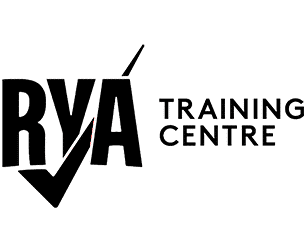
RYA Certification on completion of course
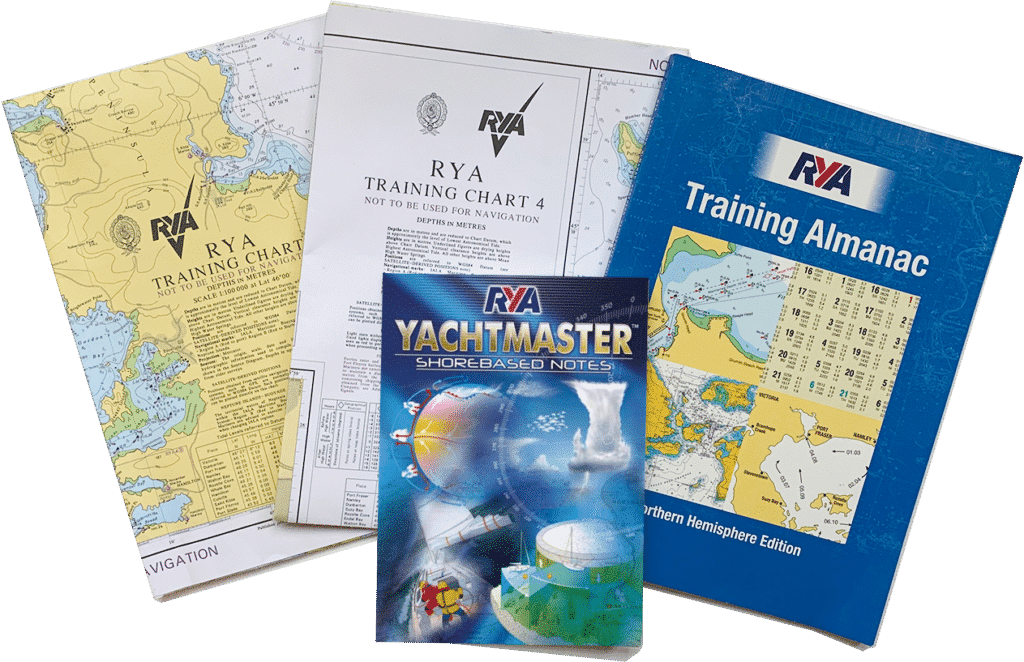
⇒ FREE TRIAL LESSON YACHTMASTER
- Unlimited support from our dedicated RYA Instructors – 365 days a year via email, phone or Skype/Zoom.
- 14-day unconditional money-back guarantee.
- 17 fully-narrated online lessons including animations, videos and realistic 3D graphics.
- Embedded quizzes with instant feedback in each lesson.
- 14 self-assessment exercises with fully worked answers.
- Over 50 downloadable or linked resources.
- Videos covering: updating paper charts, engine checks, dismasting, jury rig, flood control, firefighting, gas explosions, capsize, lifejacket checks, how to put on a lifejacket and what happens when it inflates, man-overboard recovery, launching and boarding a liferaft.
- Free Radar course.
- RYA Student Pack (including 2 training charts, training almanac & course handbook).
- Mock exams to prepare you for the real thing and give you the confidence to pass.
- 3 final online exams with detailed instructor feedback and free repeat attempts if requried.
- RYA Yachtmaster Shorebased Theory Course Completion Certificate.
- 12 months access to study with instructor support and exams – you can extend this if you want.
- Lifetime access to training materials once you’ve completed the course.
This course is accessed online with no additional software required.
You can also download courses for offline viewing via the free iSpring Play app.
Lessons are accompanied by optional professional narration, and notes.
They are intuitive and easy to follow, whilst more complex subjects are accompanied by interactive animations and graphics to help you gain a full knowledge of each subject in the course syllabus.
Detailed step-by-step workings for navigational or tidal calculations make it easy for you to follow along as we show you how to plot positions, make tidal height and stream calculations, etc
You can go over these again and again, and test your knowledge with regular quizzes throughout each lesson.
At the end of each lesson there is an excercise containg similar questions to the exam, with detailed and illustrated answers sent to you immediately to confirm your progress and fully prepare you for your mock and final exams.
You can repeat entire lessons and excercises as often as you wish until you are confident that you fully understand each subject.
When you have completed the course you can request mock and then final exams.
These are assessed by our RYA Instructors and detailed feedback is provided in any areas that may require further study within the course.
If you pass the final exams you will be awarded the RYA/MCA Coastal Skipper & Yachtmaster Offshore Shorebased Course Certificate , which will be posted to you.
Additional free resits, with suitable Instructor guidance, are available if required.
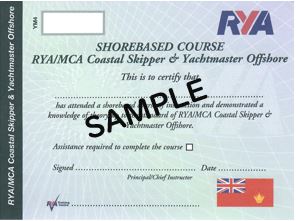
- Charts & Other Publications
- Definition of Position, Time, Speed & Distance
- The Compass (including allowance for deviation and swinging the compass)
- Tidal Theory
- Tidal Heights (including secondary ports)
- Tidal Streams (including interpolation of drift)
- Estimated Position
- Course to Steer
- Visual Aids to Navigation
- Electronic Aids to Navigation
- Passage Planning
- Meteorology (including interpreting surface pressure charts)
- The Collision Regulations
- Safety & Protection of The Environment

ARE YOU INTERESTED IN ANY OF OUR COURSES?
Privacy overview.
RYA Coastal Skipper and Yachtmaster ™ Offshore Theory (Online)
- This course looks to refine the techniques learnt in your RYA Day Skipper Theory course
- International Maritime Law
- Passage Planning
- Meteorology
- Environmental care
RYA Coastal Skipper/Yachtmaster™ theory is a more advanced course that builds on the knowledge gained at the RYA Day Skipper Theory level. Its aim is to take your theory knowledge to the standard required for the Yachtmaster™ Coastal and Yachtmaster™ Offshore practical course.
This course is open to anyone who has already completed Day Skipper Theory, and ideally has some practical boating experience. You should be comfortable applying concepts such as tidal heights and streams and interpreting weather information. You will be familiar with pilotage and passage planning. You will feel at ease with the practical and thorough application of the IRPCS. You will understand how to fix position using a variety of methods. Your knowledge of safety systems and practices will be substantial.
Your full training pack contents include:
- Two RYA practice charts
- The RYA Coastal / Yachtmaster course notes
- The RYA Coastal / Yachtmaster exercises
- The RYA Training Almanac
Please note: Your online course is provided by Navathome. Booking conditions are not the same as for courses delivered by Andrew Simpson Yachting.
Notes on shipping of training materials.
All training materials for the online courses are shipped to you the buyer. Please be aware of the Navathome policy relating to shipping. This forms part of their terms and conditions.
- Navathome is unable to ship to addresses which contain PO Box Numbers. A physical address will be required.
- Buyers must provide a valid contact telephone number at the time of booking
- Packs being shipped to Russia must be delivered to a business address.
- All packs must be signed for, so the buyer must ensure that there will be somebody available to accept the package
- Navathome will not accept responsibility for packs sent to marinas, or c/o addresses. If the pack goes missing after it has been signed for, the buyer will be liable for the cost of the replacement pack.
Course Outcomes
- With this qualification combined with additional practical experience, you should be equipped with the knowledge required to consider the RYA Yachtmaster ™ Coastal or Yachtmaster ™ Offshore examination.

To book this course please call or email our friendly team who will set you up with everything you need to get learning. Phone: +44 (0)2392 522777 Email: [email protected]


- Covid-19 £50 Off
- Day Skipper
- Yachtmaster
- Fasttrack Yachtmaster
- RYA/MCA Yachtmaster Ocean
- What's Different about Kipper Sailing?
- Affiliate Programme
- Buy Gift Vouchers
- Our Courses
RYA YACHTMASTER THEORY £315

RYA Yachtmaster Theory
Also sometimes knows as "coastal skipper/yachtmaster theory".
An advanced course for experienced skippers studying towards formal certification to command vessels up to 200GRT or to apply for a MCA Master 200 Oral Examination
- 14-day unconditional money-back guarantee
- 25% off for 2 or more bookings
- 12 months access
- 24*7 Instructor Support (from UK and Thailand)
- Student Pack (2 charts, training almanac & course handbook)
- RYA chart-plotter software
- 15 fully-narrated lessons (not just the animations) including including realistic 3D graphics and embedded quizzes with instant feedback
- 15 self-assessment exercises with fully worked answers
- Videos covering: updating paper charts, engine checks, dismasting, jury rig, flood control, firefighting, gas explosions, capsize, lifejacket checks, how to put on a lifejacket and what happens when it inflates, man-overboard recovery, launching and boarding a liferaft
- Downloadable US Chart 1 (5011 equivalent) + 48 other downloadable or linked resources
- Radar & AIS Training
- Mock Exams with automatic feedback
- 4 Final Online Exams with detailed instructor feedback and unlimited attempts. You can arrange your own invigilator. See exam guidance for more information.
- Unlimited free exam resits
- RYA Yachtmaster Theory Course Completion Certificate to support your practical course, professional qualification or MCA Master 200 Oral Exam
- Download lessons to run offline on iPads, iPhones and Android Devices
- 2 Years further access to training materials once you’ve completed the course
- UK Delivery by First Class Post. Worldwide delivery by DHL Express (+£20)
- Top quality Portland Plotter and brass chart dividers, £28
- Additional 6 months, £50 or 12 months, £80

RYA Yachtmaster Theory Syllabus
- Charts & Other Publications
- Definition of Position, Time, Speed & Distance
- The Compass (including allowance for deviation and swinging the compass)
- Tidal Theory
- Tidal Heights (including secondary ports)
- Tidal Streams (including interpolation of drift)
- Estimated Position
- Course to Steer
- Visual Aids to Navigation
- Electronic Aids to Navigation
- Passage Planning
- Meteorology (including interpreting surface pressure charts)
- The Collision Regulations
- Safety & Protection of The Environment
25%+ off for multiple bookings

Studying with friends or family is fun and tends to get better results
Order 2 or more courses and get a whopping 25% off every course. Not everybody has to study the same course.
otherwise complete this form to register
You can start studying immediately.
Please be patient. The form might take a few seconds to load.
- Scroll to top
- Account icon Log in
- Basic Safety Training
- Refresher (Fire & PST)
- Elementary First Aid
- Fire Prevention & Fire-fighting
- Personal Survival Techniques
- Advanced Fire Fighting
- Advanced Fire Fighting Refresher
- Proficiency in Security Awareness
- Personal Safety & Social Responsibility
- Crowd Management / Crisis Management and Human Behaviour
- Powerboat Level 2
- PWC/Jet Ski License
- PWI/Jet Ski Instructor
- PWC + PWI Pack
- Pack PB2 & PWC
- Day Skipper
- Shorebased Yachtmaster Theory
- Yachtmaster Practical Preparation & Offshore Exam
- Yachtmaster Offshore Package
- Full Deckhand Pack
- Full Interior Pack
- Basic Deckhand Pack
- Basic Interior Pack
- Full Tender and Jet Ski Pack
- Tender Pack
- Jetski Pack
- Yacht Deckhand Training
- Yacht Steward/ess Training
- Basic Food & Beverage Services
- Basic Housekeeping & Laundry Services
- Basic Wine, Bartending & Mixology
- Food Safety Level 2
- ⚡Lithium-ion Battery Safety Awareness on Superyachts
- VHF Short Range Certificate
- RYA Professional Practice & Responsibilities
- RYA Essential Navigation and Seamanship
- RYA Online Coastal Skipper/Yachtmaster Theory
- RYA Online Day Skipper Theory
- STCW PDSD for Superyachts
- STCW PDSD for Cruise Ships
- STCW Proficiency as Ship Security Officer on Superyachts
- Useful Information
- Steward/ess
Yachtmaster Offshore: When, Why, and How
In a seafarer’s career, there comes the time when Yachtmaster ticket becomes either a necessity, or the next logical step in professional development. No matter what the reason for the course is, Yachtmaster Offshore requires a thorough preparation and planning as well as some prior knowledge and experience.
- When am I ready to take the course?
The candidate’s eligibility for Yachtmaster Offshore program is defined by a number of requirements. First and foremost, the logged sea time must show a minimum of 2500 nautical miles, about half of which should be in tidal waters. There is a huge debate as to what tidal waters are, and the RYA leaves it to the Yachtmaster candidate to decide whether the passage they undertook happened in a tidal area. The definition offered by the RYA is as follows:
An area is deemed tidal if published stream, current or tidal range data is available, the influence of which is significant enough to require the effects to be taken into account to plan and execute a safe and efficient passage .
But even if the decision to call experience tidal is the candidate’s, the RYA wisely warns that the final judgement will be made by the examiner and recommends to list only those miles that can be backed up with evidence. The qualifying sea time should be gained on motor vessels if the candidate applies for Yachtmaster Offshore Motor license. Sail miles do not count.
The RYA also sets a requirement as to the number of qualifying passages. As defined by the Association, ‘a passage is a non-stop voyage from a departure port / safe haven to a destination port / safe haven ’. For the Yachtmaster Offshore , there must be a minimum of 5 passages over 60 nm each; 2 of those passages should be overnight and 2 when the candidate acted as a skipper. The skipper, as understood by the RYA , is a person nominated and responsible for the planning and execution of a passage including vessel and watch management . It’s important that throughout the 60-mile passage there occurs no change of skippers; otherwise, the passage cannot be deemed as qualifying.
Proper understanding of the skipper’s role is vital for ticking the box of another requirement – 5 days on board acting as a skipper. A day in this case is a period of 8 consecutive hours, and the majority of them should be at sea . In every 24 hours, Yachtmaster candidate can have only one qualifying day onboard.
Last but not least, the RYA’s Yachtmaster Offshore exam pre-requisites put some restrictions as to the tonnage and length: days on board and miles should be gained on vessels up to 500 gt and less than 24 meters LOA.
- When is the best time to take the RYA Yachtmaster Offshore course?
The full program – RYA Yachtmaster Offshore theory and RYA Yachtmaster Practical – takes 10 days to complete; the exam is usually scheduled right after, and candidates need to allow 2 days for it. With the sea, winds, and weather being unpredictable, to the candidates coming from abroad we advise to add an extra day before taking flights back home. Thus, the course is quite a commitment, and most seafarers take it during low Med season. Our Yachtmaster Offshore course is scheduled every month from December throughout April to give options to potential candidates.
- Why take the RYA Yachtmaster Offshore?
Yachtmaster is not for beginners. Commercially endorsed Yachtmaster Offshore Certificate of Competence entitles its holder to master a yacht of up to 200 gt, and that is a big responsibility. That said, one of the reasons to get Yachtmaster is to advance the qualifications from entry to higher level including MCA Officer of the Watch (OOW) or Chief Mate, for which Yachtmaster Offshore CoC is among the required documents. Yachtmaster Offshore Shore-based (theory) certificate is another pre-requisite to apply for the OOW, and it has to be sent along with STCW and other records as a part of the Notice of Eligibility.
In a scheme of RYA training , Yachtmaster Offshore is preceded by RYA Day Skipper and Coastal Skipper, which allow to navigate 20 and 60 nautical miles offshore accordingly. With Yachtmaster Offshore qualifications, it is possible to skipper a cruising yacht up to 150 miles from harbour, so recreational boaters can have larger areas to explore and longer distances to cover.
- How to apply for Yachtmaster Offshore Program?
If you believe you are ready and meet the pre-requisites mentioned above and outlined on our website , your first step is to get in touch with us by email, phone, or through contact form . Once we receive your enquiry, we will email to you Sea Time Summary and Self-Evaluation forms to fill out, which we will then forward to our instructor to confirm your eligibility. If you are eligible for the course, we will proceed with course booking and securing your place on the training.
Some important things to remember: the candidates for the training should hold a valid Elementary First Aid certificate . For the STCW EFA , it should be issued within the last 5 years, for the RYA First Aid - within the last 3 years. VHF Marine Radio certificate can be offered as a part of Yachtmaster Offshore package , but if you already hold the certificate, we can offer a 100 euros reduction.
Our next Yachtmaster Offshore session starts on the 6 th of December. Click here for more dates.
More questions about Yachtmaster? Let us know!
Leave a comment
Comments must be approved before appearing
* Required fields
Subscribe to our newsletter & be the first to know of training dates & offers
Checkmark icon Added to your cart:
- Course Login
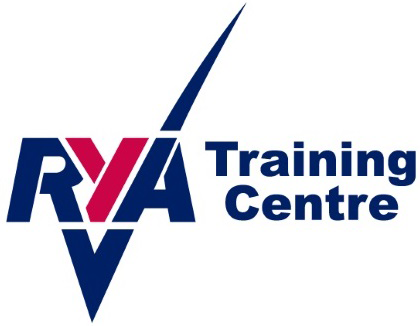
RYA Online Courses
Rya yachtmaster online course.
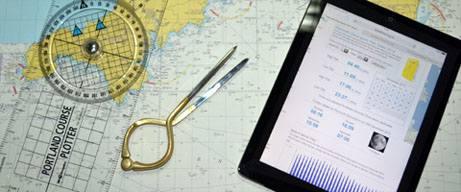
£ 315.00
Description
The RYA Yachtmaster online theory course is an advanced course that builds on the knowledge gained on the shorebased Day Skipper course. The course is aimed at sailors and motor boaters who are looking to undertake more complex passages, perhaps offshore or at night. This course is a must for those looking to work towards taking the RYA Coastal Skipper or Yachtmaster Offshore practical exams.
The RYA Online Yachtmaster course costs £315.00 and includes the RYA Course pack which contains: 2 Full size Training charts, a Training Almanac and Shorbased notes that will act as an Aide-mémoire throught the online course
***NEW*** When you purchase this course you will also gain full access to our new Online Diesel Engine course.
The Yachtmaster online course is an intensive programme covering advanced navigation techniques. It includes position fixing, course shaping and plotting, tidal knowledge, secondary port calculations, navigation in restricted visibility, Admiralty publications and electronic position finding equipment.
The meteorology tuition within the course includes the taking and interpretation of forecasts, plotting of weather systems and weather prediction. Students are shown how to use this information when planning and executing passage plans. The International Regulations for Prevention of Collision at Sea are dealt with in detail and you will also learn more about yacht stability and safety offshore.
Students will need to have a valid RYA Day Skipper theory certificate or equivalent and have thoroughly revised the Collision Regulations before taking the course.
YACHTMASTER QUALIFICATION WITH AN RYA APPROVED COURSE

The animated lessons are not matched in any other Yachtmaster online course. They are designed to make learning interesting and questions easy.
Assessment methods within the courses ensure student training is E valuated, V alidated and R ecorded.
The majority of Yachtmaster Online courses are mainly narrated videos and slideshows and to be honest, you may as well buy a book.
Our Yachtmaster online courses are fully animated lessons with an optional voice over so you get the best of everything.
Click here for a Free Trial
You will receive RYA Certification on satisfactory completion of the course.
The RYA Yachtmaster online course is provided by Navathome, a RYA Recognised Training Centre specialising in online training, and includes: a course pack consisting of training charts, exercises pack, Yachtmaster shorebased booklet, and your certificate, which is normally priced at £40.00. Plus, a Training Almanac normally priced at £7.49 (Day Skipper/Yachtmaster).
By clicking a payment button you are agreeing to Navathome’s terms and conditions available here .
To Purchase your course just click your preferred payment method below.
The RYA Online Yachtmaster course normally costs £315
YACHTMASTER ONLINE COURSE TOPICS INCLUDE:
- position fixing
- course shaping and plotting
- tidal knowledge
- use of almanacs and admiralty publications
- electronic position finding equipment
- taking and interpreting forecasts
- plotting weather systems
- weather predictions using a barometer and by observation
- collision regulations
- customs and excise regulations for cruising abroad
There is a six-month initial access period to the online theory course. In the unlikely event that you will need an extension, there is an option to extend as many times as you like until you pass your assessment. The cost of administrating each 6-month extension, beyond the initial 6 months, is £30.

This is an advanced course in navigation and meteorology for candidates for the Coastal Skipper and Yachtmaster Offshore Certificate.
This course will take your theory knowledge to the standard required for the Yachtmaster™ Coastal and Yachtmaster™ Offshore practical exams, concentrating on advanced navigation and meteorology skills.
As with the Day Skipper shorebased course, the RYA’s specially designed chart plotter software will be used during the course to give you a realistic taste of modern electronic navigation.
Those who have not acquired the knowledge set out in the Day Skipper course are unlikely to be able to assimilate all the subjects covered in this advanced course.
1. Position
- Dead reckoning and estimated position
- Satellite-derived position
- Use of waypoints to fix position
- Radar fixes
- Techniques of visual fixing
- Fixes using a mixture of position lines
- Relative accuracy of different methods of position fixing
- Area of uncertainty
2. The magnetic compass
- Allowance for variation
- Change of variation with time and position
- Causes of deviation
- Swing for deviation (but not correction)
- Allowance for deviation
- Different types of compass
- Causes of tide – Springs and Neaps
- Tide tables – sources
- Tidal levels and datum
- Standard and secondary ports
- Tide anomalies (Solent, etc.)
4. Tidal Streams
- Sources of tidal information
- Tidal stream information in sailing directions and Yachtsmen’s Almanacs
- Allowance for tidal streams in computing a course to steer
- Tide rips, overfalls and races
- Tidal observation buoys, beacons etc.
- IALA system buoyage in Region A
- Limitations of buoys as navigational aids
- Characteristics
- Ranges – visual, luminous and nominal
- Rising and dipping distances
- Light lists
7. Pilotage
- Harbour regulations and control signals
- Methods of pre-planning
- Clearing lines
- Use of soundings
- Transits and leading lines
8. GPS and chart plotters
- Principles of operation and limitations of use
- Raster and vector charts
- Importance of confirmation of position by an independent source and keeping a separate record of position
- Importance of paper charts
9. Echo sounders
10. logs (speed and distance measuring).
- Principles of operation limitations of use
11. Deck log
- Importance of log as yacht’s official document
- Layout of log, hourly and occasional entries
12. Meteorology
- Basic terms, the Beaufort scale b. Air masses c. Cloud types d. Weather patterns associated with pressure and frontal systems e. Sources of weather forecasts f. Ability to interpret a shipping forecast, weatherfax and weather satellite information g. Land and sea breezes h. Sea fog i. Use of barometer as a forecasting aid
13. Rules of the Road
- A sound knowledge of the International Regulations for Preventing Collisions at Sea, except Annexes 1 and 3
14. Safety at Sea
- Personal safety, use of lifejackets, safety harnesses and lifelines
- Fire prevention and fire fighting
- Distress signals
- Coastguard and Boat Safety Scheme
- Preparation for heavy weather
- Liferafts and helicopter rescue
- Understanding of capabilities of vessel and basic knowledge of stability
15. Navigation in restricted visibility
- Precautions to be taken in fog
- Limitations to safe navigation imposed by fog
- Navigation in poor visibility
16. Passage planning
- Preparation of charts and notebook for route planning and making, and use at sea
- Customs regulations as they apply to yachts
- Routine for navigating in coastal waters
- Strategy for course laying
- Use of waypoints and routes
- Use of weather forecast information for passage planning strategy
- Sources of local and national regulations

Packs will be delivered for free to destinations within most of the mainland United Kingdom.
We cannot deliver to a PO Box address. A physical address will be required in all circumstances.
A valid contact telephone number for the student will also need to be provided at the time of making the booking.
Packs to Russia must go to a Business address.
Sailtrain will not accept responsibility for Packs sent to Marinas, or C/O addresses. If the pack goes missing after it has been signed for, replacement packs will only be provided at the students expense.
Details of any special delivery requirements should be provided in the notes section of your Booking form.
The shipment of packs to the following countries not shown above will incur the below indicated additional charge:
You may also like…
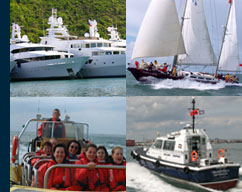
PPR – PROFESSIONAL PRACTICE AND RESPONSIBILITY COURSE ONLINE
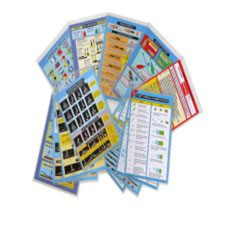
Cockpit Cards
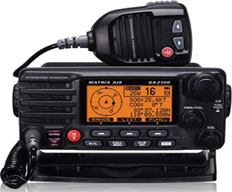
RYA VHF RADIO COURSE ONLINE
© Copyright Sailtrain Ltd 2024, All Rights Reserved | Sitemap | Privacy Policy

Day Skipper Theory Quiz
Test your knowledge with these 10 theory questions. The quiz is aimed at those planning to join us for an RYA Day Skipper practical course. This is NOT an admission test, it is meant for you to check your theory knowledge and identify any gaps, so they can be filled before you join us for the practical week. Remember, whilst we will put into practice all the necessary theory notions, there will be little time to actually study the theory from scratch! Fill in your name and email and click on Start. Select your answer and move onto the next question. At the end of the quiz you will see how you scored and you will be able to review the correct answers.
You have 3 minutes to complete the quiz, which is more than enough, given the nature of the questions. A Timer will be shown at the top of the quiz.
Day Skipper - pre test
Hi, welcome to our quiz page, where you can informally test your knowledge before attending one of our courses. Please fill out the information below:
What does the writing and numbers inside the compass rose indicate?
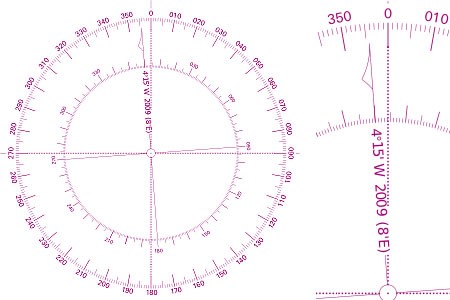
What vessel would show these lights at night?
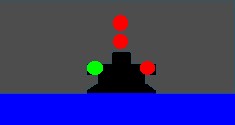
What is a vessel showing these signs wanting to communicate?

You hear three horn blasts from a big vessel. What is she communicating?
What is this mark called?
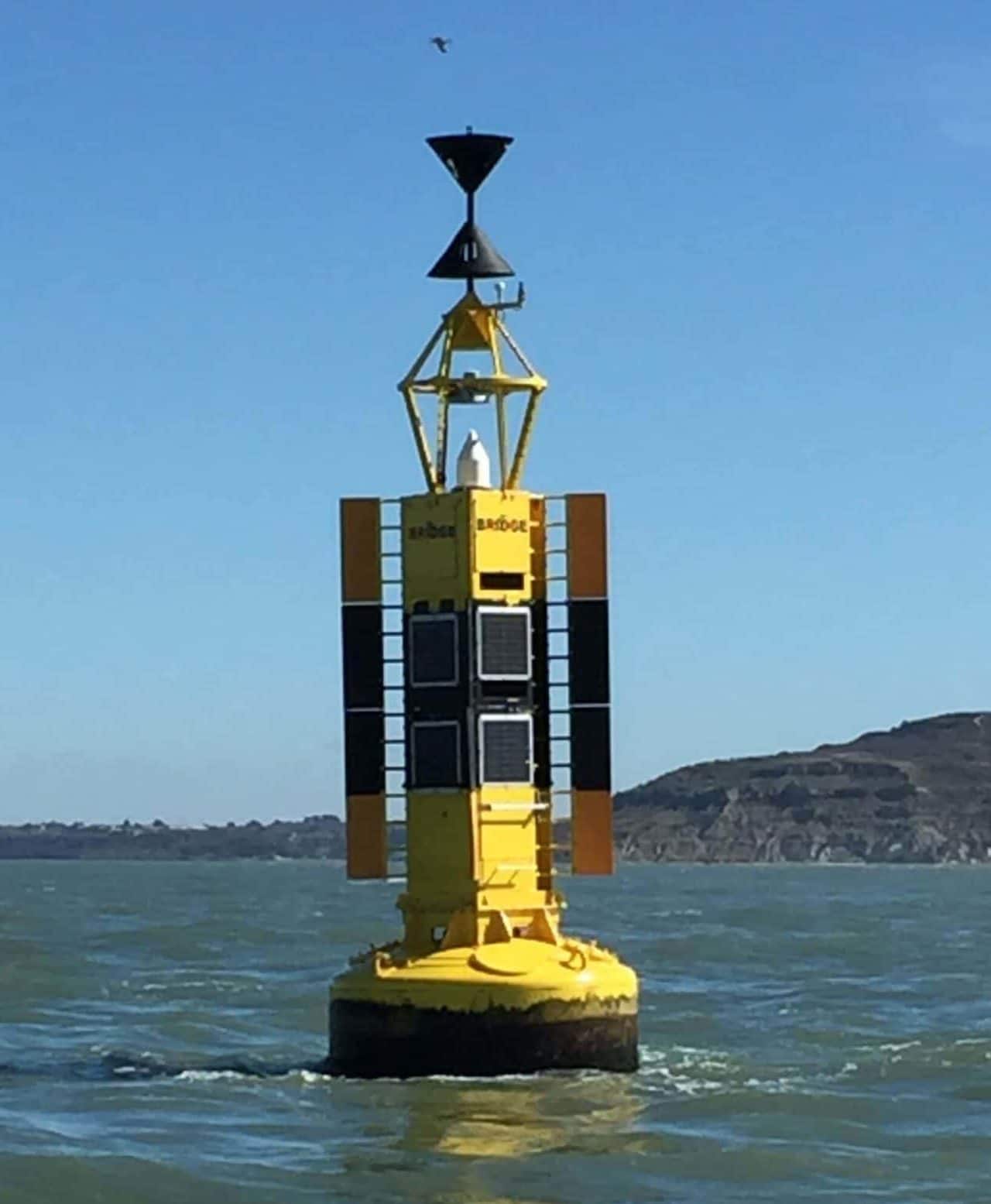
What is the apparent wind?
What is the angle of visibility (in degrees) of each of the navigation lights at the bow?
In what instance would a vessel show these day shapes?
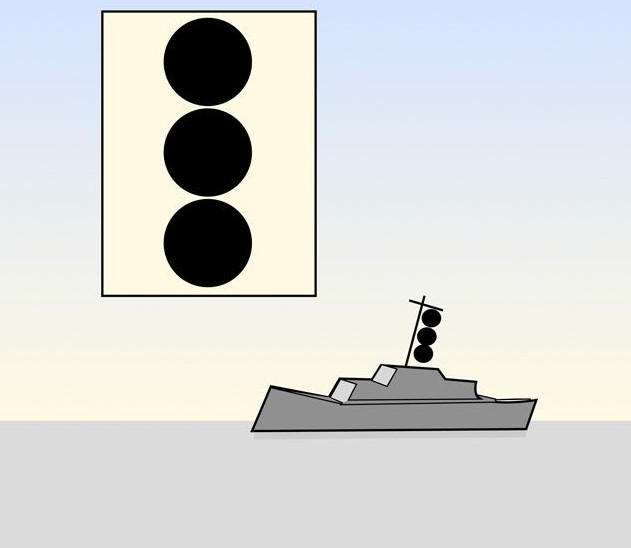
Which vessel is Stand-on and why?

What is the recommended amount of chain that should be paid out when anchoring in 6m deep water?
Your score is
Restart quiz
Please rate this quiz
Privacy Policy Designed using Hoot Business Premium . Powered by WordPress .
Register today and get £50 off
Enter voucher code HOME STUDY in the booking form
Online Theory Course
An outstanding course - I can highly recommend this. The details, feedback and support is excellent - makes celestial navigation understandable!

Unravel the mysteries of astro navigation, the sextant, global meteorology and ocean passage making
The online RYA/MCA Yachtmaster Ocean theory course teaches advanced techniques to those aspiring to blue water cruising and is ideal for holders of the Yachtmaster Offshore certificate who are preparing for their first ocean passage, and for commercial Skippers or Mates planning on operating more than 150nm from a safe haven.
This course will introduce you to the principles of astro navigation, the practical use of the sextant, the measurement of time, position fixing by the sun and stars, compass checking and great circle sailing.
You’ll also study the concepts of worldwide meteorology, including tropical revolving storms, and passage planning for ocean voyaging.
- Assumed knowledge Yachtmaster level.
- Minimum duration 40 hours study is specified by the RYA.
- Ability after course Theory knowledge to undertake an ocean passage.
Simply click below to try a free lesson.
Introduction to Astro Navigation
- Introduction & Basic Astro Navigation Theory
- Using a Sextant
- Meridian Passage
- Plotting Your Position
- Planet Sights
- Moon Sights
- Star Sights
- Latitude by Polaris (The Pole Star)
- Compass Check by Sun’s Amplitude
- Ocean Weather & Tropical Storms
- Passage Planning
- Satellite, HF communications and obtaining weather data
Unlimited support from our dedicated RYA Instructors - 365 days a year via email, phone or Skype/Zoom.
14-day unconditional money-back guarantee.
13 fully-narrated online lessons including animations, videos and realistic 3D graphics.
Embedded quizzes with instant feedback in each lesson.
Self-assessment exercises with fully worked answers.
Final exam with detailed instructor feedback and free repeat attempts if requried.
RYA Ocean Yachtmaster Shorebased Theory Course Completion Certificate.
12 months access to study with instructor support and exams - you can extend this if you want.
Lifetime access to training materials once you’ve completed the course.
This course is accessed online with no additional software required.
Lessons are accompanied by optional professional narration, and notes.
They are intuitive and easy to follow, whilst more complex subjects are accompanied by interactive animations and graphics to help you gain a full knowledge of each subject in the course syllabus.
Whilst the process of translating a sextant sight into a position line is straightforward it is quite challenging to get to grips with. Unlike classroom training, where time is limited and students progress at different rates, online learning allows you to participate in lessons as many times as you wish to fully get to grips with the concepts.
At the end of each lesson there are excercises containg similar questions to the exam, with detailed and illustrated answers sent to you immediately to confirm your progress and fully prepare you for your final exams.
You can repeat entire lessons and excercises as often as you wish until you are confident that you fully understand each subject.
When you have completed the course you can request the final exam.
This is assessed by our RYA Instructors and detailed feedback is provided in any areas that may require further study within the course.
If you pass the final exam you will be awarded the RYA/MCA Yachtmaster Ocean Shorebased Course Certificate , which will be posted to you.
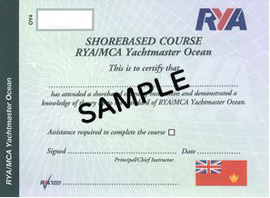
Ad ditional free resits, with suitable Instructor guidance, are available if required.
If you are working towards your Yachtmaster Ocean Certificate of Competence, successful completion of this course exempts you from the written exam.
For most students exam invigilation is not required - see here for examples of when invigilation is required.
Call us for advice on 0238 218 2604
Read this Sailing Today article about our Ocean Yachtmaster course
Course Reviews
Nigel Andrews
Helped me master it
This was my third attempt at an RYA Yachtmaster Ocean online course from different companies, and by far the best. For an admittedly difficult subject matter to get one’s head around, the instructor presents a very organized and understandable series of lessons that combine learning with wisdom and humour. Its still a tough subject, but this course helped me master it. Thanks!
Mathew Myatt
Ability to repeat when in doubt
Logical and clear. What was really good was the ability to go back and repeat or all or part of a lesson to ensure you truly understand a concept / principle, something which is more difficult to do when in a real classroom situation
David McIntyre
An excellent course
I found this course to be very comprehensive and informative. The format was very well presented and clear. The main advantage for me was the convenience of doing this in your own time. They are very generous with this. All my correspondence was very promptly replied. They are certainly very on the ball. The instructors gave clear and prompt feedback.
David Collins
Well worth the investment. Excellent!
A challenging course which stretches you but backed up with excellent coaching and instructor support. Worth the investment in time and money. Highly recommended.

Combined - RYA Day Skipper & Yachtmaster to fast track your theory learning

- RYA First Aid Course
- RYA Professional Practices & Responsibilities Course
- RYA VHF radio (SRC) Classroom Course
- VHF pre-course learning
- RYA VHF/SRC exams
- RYA CEVNI ICC (inland waterways)
- RYA Safeguarding 'Safe & Fun' course
- Navigation Theory Refresher
- RYA Essential Navigation & Seamanship Classroom Course
- RYA Day skipper shorebased theory classroom course
- RYA Coastal skipper / Yachtmaster Offshore theory classroom course
- Online courses - FAQ
- Online test page
- RYA Jet ski (PWC) Proficiency Course
- Planning a Jetski Adventure
- Safety & Patrol Jetski Operator Training
- RYA Jet ski (PWC) Instructor Course
- RYA Jet ski (PWC) Instructor Conversion Course
- RYA Powerboat level 1 course
- RYA Powerboat level 2 Course
- International Certificate of Competence
- Youth RYA Powerboat Courses
- Private Powerboat Lessons
- Private RYA Powerboat Courses
- RYA Powerboat Level 1 Course (Own Boat)
- RYA Powerboat Level 2 Course (Own Boat)
- Bespoke Tuition (Own Boat)
- Introduction to Night Powerboating
- RYA Powerboat Intermediate Course
- RYA Tender Operator Course
- RYA Advanced Powerboat Course
- Advanced Powerboat Exam CoC
- RYA Powerboat instructor Skills Assessment
- RYA Powerboat instructor Course
- RYA Yachtmaster Instructor to Powerboat Instructor Conversion Course
- RYA Advanced Powerboat instructor Course
- RYA Jetski (PWC) instructor Course
- RYA Powerboat to Jetski (PWC) instructor conversion Course
- RYA Powerboat Instructor Workshops
- RYA Jetski Instructor Workshops
- RYA Jetski (PWC) proficiency /licence course
- Onboard PWI Booking & Terms
- PWI student page
- Student details
- Working on a Superyacht
- Superyacht Jetski Lifting Slings
- Commercial Boating
- RYA Course Gift Vouchers
- Christmas Gift Vouchers
- Our Location
- Teaching craft
- Customer Reviews
- Our RYA Training Team
- Local Accommodation
- Poole Harbour Boating Guide
- RYA Online & Shorebased Courses
- RYA Yachtmaster Offshore Online Course
RYA Coastal Skipper/Yachtmaster Theory Online Course
This course follows on from the Day Skipper course and builds on many of the subjects covered on that course but in much more depth, whilst also introducing many other new and equally important subjects. This course is aimed at those wishing to go onto complete the Coastal Skipper and Yachtmaster practical courses and exams as well as the recreational boaters wishing to widen their knowledge base. By the end of the course you should be equipped with the knowledge to navigate a sailing yacht or powered craft in unfamiliar coastal and offshore waters during the day and night.
Pre-requisites
A knowledge/skill base to the level of RYA Day Skipper Shorebased .

What's Involved?
This is an eLearning course, but an RYA instructor is on hand to provide as much support as you require, this is done predominately by email, but Skype/Zoom chats can be organised at pre-arranged times.
Course Content
- Position fixing
- Course shaping and plotting
- Tidal knowledge
- Use of almanacs and admiralty publications
- Electronic position finding equipment
- Taking and interpreting forecasts
- Plotting weather systems
- Weather predictions using a barometer and by observation
- Collision regulations
- Customs and excise regulations for cruising abroad

Course Duration
Recommended reading, delivered by.
Approximately 6 days
Pay online, we create and send you all the login details and post your course pack.
Sailing Courses Online, an RYA Training Centre specialising in online courses.
Book this course
This is an online course so all you need to do is to select 'Book Now' and then pay and we will send your login details and instructions for taking the course. The login will arrive the next business day as we need to manually set you up for this course.
We're always really keen to chat to you when you’re booking a course as whilst we are happy to take bookings through this system for your convenience - nothing beats chatting about boats and courses!
Whilst this is an online course you will be prompted for a date, just leave the date it gives you as it doesn't matter what date is selected. Select as many spaces as you need and then follow the booking process.
PLEASE NOTE: When you book this course we need to MANUALLY set you up on the Interactive system. This is the same for ALL schools. We will set you up by close of play the next working day. We apologise for this delay but this is a course requirement and not down to us. :)
If overseas customers book the UK option we cannot set you up online until you have paid the additional postage amount of £25.
What's included?
- Online e-Learning course
- Training charts
- Course handbook & exercises
- RYA Training Almanac
- Assessment papers
- Electronic chart plotter CD
- Support from a RYA instructor

Use Of Your Personal Data (GDPR Compliance)
To enable access to your online course we need to share some of your personal data with 'Sailing Courses Online'. This training website and database is held and maintained on a secure server. Sailing Courses Online is an RYA training centre which specialises in online navigation training and will not use your personal information for any reason other than enabling your course.
How Does It All Work?

Once you've received a confirmation email from us, you can login with the username & password that is emailed to you.

Your course pack will be posted to you but you don't need to wait for this to start your course.

Carry out the online training course at your own pace. (Maximum 6 months)

If you have any questions at any stage during your course, simply email your instructor.

At the end you need to sit tests. If you need this qualification commercially please talk to us as you may need to be invigilated. On successful completion, you will receive your certificate in the post.
What about if i need to use this commercially?
You do not necessarily need your Yachtmaster Theory online course assessment invigilated.. have a read through the below as this may answer the question as to whether you do or not..
What is assessment invigilation and who can conduct it?
In some cases, it is necessary to arrange for an RYA Instructor to be present throughout the assessment to verify that you haven't received any outside assistance. This may be an RYA Instructor of any level.
When is invigilation required, do I really need it?
In most cases, invigilation of the final theory assessment is not necessary and is completely optional. We have summarised this for you below:
Invigilation is not required:
- If you are going to be using the qualification for leisure purposes (flotilla, charter, own boat cruising etc).
- If you wish to qualify as a RYA Cruising Instructor or an RYA Yachtmaster Instructor.
- For Skippering vessels below 200GT
- If you are wishing to add a Commercial Endorsement to a RYA Yachtmaster Coastal or an RYA Yachtmaster Offshore Certificate of Competence.
Invigilation will be required:
- If you wish to enter MCA large yacht qualifications such as Officer of the Watch or Master 3000 all of your theory assessments must be invigilated
- If you intend to Skipper vessels of over 200GT
- If you intend to use your RYA Day Skipper Certificate or Competence for commercial purposes such as sea angling or commercial dive-boat operations within the UK you will require a professional endorsement to a Day Skipper Certificate of Competence. This will enable you to skipper a small commercial vessel. If your Day Skipper shorebased exam is invigilated by an RYA Instructor you will be able to operate up to 12 mile limit from the vessel's home port. If your theory exam has not been invigilated, operation will be authorised for a 3 mile limit from the vessel's home port.
How can invigilation be arranged?
You may choose to make your own arrangements independently, please note: the chosen RYA recognised Training Centre may wish to charge a fee to cover their instructor time. This will need to be agreed by your instructor to ensure the centre you wish to be invigilated is acceptable to do it at.
- Scroll to top

- Search forums
- Practical Boat Owner's Reader to Reader
Yachtmaster Past Papers
- Thread starter plumrock
- Start date 22 Dec 2015
- 22 Dec 2015
Hi, I can see this topic has been broached a few times before... I've been hunting all over the web for a series of Yachtmaster past papers . Does anyone have a handy link - or even better - a batch of pdf's. Thanks, Pip Thornton - (North Cornwall)
Well-known member
Active member.
Suspect You run into RYA copyright challenges I suspect, though I trust we are talking about YM Theory papers? However, you can buy the mock charts and question book from RYA
- 23 Dec 2015
prv said: It's a practical exam http://www.rya.org.uk/coursestraining/exams/Pages/howtopassyourexam.aspx Pete Click to expand...
duncan99210
I've always understood that there's the shore based Yachtmaster theory course, which ends in a written examination and the Yachtmaster practical examination which is conducted afloat by a RYA appointed examiner. No matter what the Croatian authorities may or may not accept, it is the paractical examination which leads to the Yachtmaster qualification not simply passing the theory exam. There was a thread recently started by someone complaining that the RYA wouldn't give him an ICC on the strength of his theory certificate: it was pointed out that this was because whilst he had demonstrated his ability to sit in a classroom and regurgitate knowledge, he hadn't shown anyone he could actually handle a boat at sea.
At the end of the Theory courses (DS, YM(Coastal and Offshore) you finish up with a course completion certificate, not a certificate of competence
Its amazing what a simple question stirs up... I think it is obvious to ALL - that the YM Theory course doesn't make you a Yachtmaster... OF COURSE there is a practical element. I was just asking for some Past Papers to help self study for the theory prior to sitting an exam at a recognized ctr (to enable commercial accreditation). The RYA have been running courses for decades - so there will be loads of interesting questions lying around. In the RYA's typically 'stuffy' approach to learning (our way or no way) they don't make them available. I've just helped my sons through 'A' Level Maths... with loads of practice (past) papers EASILY available.
RichardS said: It's the same qualification that the Croatians accept as equivalent to ICC (as discussed on the other thread) Click to expand...
RichardS said: I'm not sure why you say that. I've a certificate which says "RYA Yachtmaster" and I didn't have to go anywhere near a boat to pass that examination, just spend 100 hours sitting in a classroom and doing homework questions. Click to expand...
Gladys said: At the end of the Theory courses (DS, YM(Coastal and Offshore) you finish up with a course completion certificate, not a certificate of competence Click to expand...
rogerthebodger
plumrock said: you don't say... Just seems strange that the RYA don't have a supply of past papers (must have years and years of them). Would greatly help with self study for the theory ... Click to expand...
- 24 Dec 2015
NickRobinson
Rogershaw said: Our examining agency have 4 different exam papers that they randomly select so will not allow you to keep then otherwise they will have to keep on setting new exam papers which means work !!! Could RYA operate in a similar way hence no past papers available Click to expand...
NickRobinson said: 5/6/8+ years ago now but my RYA DS and then YM Coastal exams ended with the instructor/invigilator collecting in the papers and declining a request by one student to keep it, so yes. Click to expand...
RichardS said: One gets you a certificate as Yactmaster (Theory) and the other gets you a certificate as Yachtmaster (Practical), although neither of them specifically say this on the certificate. The Theory was far more valuable for me as I could have easily obtained a Day Skipper, Yachtmaster or ICC based on my practical experience. However, I could never have passed the Yachtmaster Theory as that required a much deeper level of knowledge of so many nautical subjects. However, this is merely re-hashing the previous thread where I listed the Yachtmaster areas of knowledge. Richard Click to expand...
RichardS said: I'm not sure why you say that. I've a certificate which says "RYA Yachtmaster" and I didn't have to go anywhere near a boat to pass that examination, just spend 100 hours sitting in a classroom and doing homework questions. It's the same qualification that the Croatians accept as equivalent to ICC (as discussed on the other thread) Having a boat certainly helped though! Richard PS I don't think I've any of the papers but I'll look later. In the meantime the attached might be helpful https://www.dropbox.com/sh/nt1h29mji9gxgbm/AABjzUaRH0rR6gZVyautfWNfa?dl=0 I wrote the three spreadsheets during the course of my Yachtmaster to help me understand the theory and have something potentially useful. The ColRegs chart was written by another Forumite. Click to expand...
- 25 Dec 2015
YM Theory is three assessment papers now, Chartwork, General and Col Regs. The reason the papers aren't available is that questions are recycled between the years. It took a couple of years to sort out the 2007-15 papers, the syllabus changes from Jan 1, as DS changed last year to introduce more use of electronics - I believe (I haven't taught the latest syllabus yet) that candidates are able to use the new RYA Plotter to do their chart work, although they still have to answer certain questions in pencil on the chart.
Blue Sunray
- 26 Dec 2015
IMHO not been able to review the exam papers both question and answer after marking prevents the you from determining what you did wrong in the answers that were marked wrong. I have always found this very usefull as I tend to remember the answers I failed on than the ones I got correct. There was a question asking to describe the isolated danger buoy which I got wrong, but will never forget now.
Elecglitch said: Thank you those look useful. Nice to see someone helping out rather than point scoring. Click to expand...
Members online
Share this page.
- Certificates of Competence
RYA Yachtmaster Ocean Exam
Full details of the exam syllabus and requirements are shown in the RYA Yachtmaster Scheme Syllabus and Logbook (G158), which is available from the RYA webshop.
The exam consists of an oral and written test.
The candidate must provide the examiner with the following information 48 hours prior to the exam:
- A narrative account of the planning and execution of the qualifying passage providing all relevant details.
- Navigational records, completed on board a yacht on passage, out of sight of land showing that the candidate has navigated the yacht without the use of electronic navigational aids. The records must include as a minimum, planning, reduction and plotting of a sun run meridian altitude sight and a compass check carried out using the bearing of the sun, moon, a star or planet.
During the oral test the candidate will be required to answer questions on all aspects of ocean passage making in a yacht, including passage planning, navigation, worldwide meteorology, crew management and yacht preparation, maintenance and repairs.
The written exam will include questions on sights and sight reduction and worldwide meteorology.
Candidates who hold the RYA/MCA Yachtmaster Ocean Shorebased Course Completion Certificate (final exam must have been invigilated at an RYA RTC), or a MCA issued full STCW Certificate of Competence as a Deck Officer (Unlimited) will be exempt from the written examination.
Before you book your exam please check that you:
- have completed the required mileage and experience as skipper
- have read the syllabus in RYA Logbook (G158)
- have read and comply with the pre-requisites above.
If you need your Certificate of Competence in order to work on board a commercial craft subject the MCA's codes of practice, you will need to get it commercially endorsed - see 'Related articles'.
Please note: Only those who hold the RYA Yachtmaster Offshore Certificate of Competence are eligible to receive the RYA Yachtmaster Ocean Certificate of Competence on passing the oral exam. Those holding OOW (Yacht 3000gt) will receive a pass confirmation certificate.
RYA Yachtmaster Ocean exam pre-requisites

IMAGES
VIDEO
COMMENTS
Register today and get £50 off. Enter voucher code. HOME STUDY. in the booking form. Excellent. 1,799 reviews on. Navigate. Try our RYA theory quiz to test your knowledge and see whether our Day Skipper or Yachtmaster theory course is best for you.
Officially speaking, the RYA Yachtmaster Theory course builds on that which is taught in the shore-based Day skipper course. However, for most people who have sailed regularly, then jumping straight to Yachtmaster theory is unlikely to be a major problem. ... To become a fully-fledged Yachtmaster, this practical test is the one that counts ...
Yachtmaster training can take place on a boat or in a classroom. A shore-based course, either at desks in a school or via the increasingly popular Internet distance learning programmes, ends with a Yachtmaster theory exam. Success in this will help a student in subsequent qualification upgrades, but it is not officially recognised.
Yachtmaster - pre test. Test your knowledge with these 10 theory questions. The quiz is aimed at aspiring RYA Yachtmaster Coastal or Offshore. Select your answer and move onto the next question. At the end of the quiz you will see how you scored and you will be able to review the correct answers.
RYA Yachtmaster Theory is an in-depth course with a wide subject field. But in short it will include position fixing, magnetic compass, tides, tidal streams, buoyage, lights, pilotage, and introduction to GPS and plotters, meteorology, collision prevention regulations, safety, navigation and passage planning among a lot more to numerous to go ...
Having got through her Yachtmaster Theory, Liz Rushall shares her tips and hints for the Yachtmaster Practical. It's not often I wish to not be aboard a boat, writes Liz Rushall. Liz Rushall has won national dinghy and keelboat titles, but currently cruises a 28ft classic called Ragdoll. But in the dead of night, stressing about to what ...
Prepare the boat for the manoeuvre (using the crew) Select the correct direction and angle of approach. Select the correct sail combination for this approach. Control the boat speed on the approach bringing the boat to a stop in a controlled manner. Picking up and secure to the mooring bouy safely.
The Yachtmaster Online Theory course is the third level of online RYA training available, covering the syllabus for Yachtmaster Coastal and Yachtmaster Offshore theory in a single course. This is advanced training for more experienced sailors, building on the Day Skipper practical and theory courses and equipping you to navigate safely on ...
RYA Coastal Skipper/Yachtmaster™ theory course equips you to navigate safely on coastal and offshore passages and to foreign destinations and can be used as a stepping stone towards a career on the water. The Nav-School course comprehensively covers the full RYA Coastal Skipper/Yachtmaster™ Syllabus. position fixing. course shaping and ...
RYA Yachtmaster Shorebased Theory Course Completion Certificate. 12 months access to study with instructor support and exams - you can extend this if you want. ... You can go over these again and again, and test your knowledge with regular quizzes throughout each lesson. ...
RYA Coastal Skipper/Yachtmaster™ theory is a more advanced course that builds on the knowledge gained at the RYA Day Skipper Theory level. Its aim is to take your theory knowledge to the standard required for the Yachtmaster™ Coastal and Yachtmaster™ Offshore practical course. This course is open to anyone who has already completed Day ...
RYA Yachtmaster Theory Course Completion Certificate to support your practical course, professional qualification or MCA Master 200 Oral Exam Download lessons to run offline on iPads, iPhones and Android Devices 2 Years further access to training materials once you've completed the course UK Delivery by First Class Post. ...
The full program - RYA Yachtmaster Offshore theory and RYA Yachtmaster Practical - takes 10 days to complete; the exam is usually scheduled right after, and candidates need to allow 2 days for it. With the sea, winds, and weather being unpredictable, to the candidates coming from abroad we advise to add an extra day before taking flights ...
The RYA Online Yachtmaster course costs £315.00 and includes the RYA Course pack which contains: 2 Full size Training charts, a Training Almanac and Shorbased notes that will act as an Aide-mémoire throught the online course. ***NEW*** When you purchase this course you will also gain full access to our new Online Diesel Engine course.
in the booking form. 1,790 reviews on. Navigate. Study for RYA Day Skipper and Yachtmaster theory qualifications with Skippers Online training courses based on the RYA's world leading training programme for leisure & professional sailors & motor boaters. Call us for advice 0238 218 2604.
Test your knowledge with these 10 theory questions. The quiz is aimed at those planning to join us for an RYA Day Skipper practical course. This is NOT an admission test, it is meant for you to check your theory knowledge and identify any gaps, so they can be filled before you join us for the practical week. Remember, whilst we will put into ...
The online RYA/MCA Yachtmaster Ocean theory course teaches advanced techniques to those aspiring to blue water cruising and is ideal for holders of the Yachtmaster Offshore certificate who are preparing for their first ocean passage, and for commercial Skippers or Mates planning on operating more than 150nm from a safe haven.. This course will introduce you to the principles of astro ...
This course is aimed at those wishing to go onto complete the Coastal Skipper and Yachtmaster practical courses and exams as well as the recreational boaters wishing to widen their knowledge base. By the end of the course you should be equipped with the knowledge to navigate a sailing yacht or powered craft in unfamiliar coastal and offshore ...
I've a certificate which says "RYA Yachtmaster" and I didn't have to go anywhere near a boat to pass that examination, just spend 100 hours sitting in a classroom and doing homework questions. You maybe have the Yachtmaster Theory ticket, but you can't (or shouldn't) be able to get a full Yachtmaster ticket without a practical exam.
The RYA Yachtmaster® Ocean is experienced and competent to skipper a yacht on passages of any length in all parts of the world. Full details of the exam syllabus and requirements are shown in the RYA Yachtmaster Scheme Syllabus and Logbook (G158), which is available from the RYA webshop. The exam consists of an oral and written test.